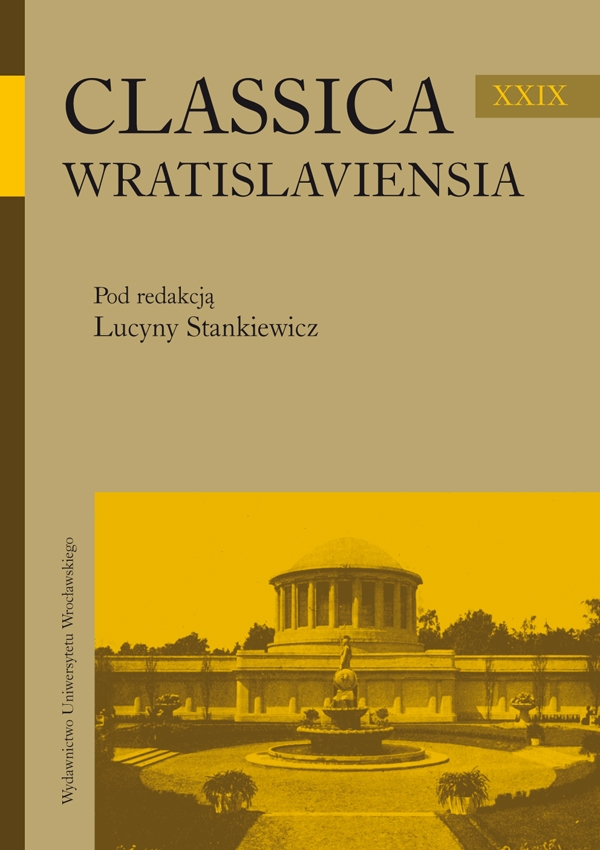Wizja sprawiedliwości w "De perfectione iustitiae hominis" św. Augustyna
Abstrakt
The concept of justice in Saint Augustine’s "De perfectione iustitiae hominis"
The paper “Wizja sprawiedliwości w De perfectione iustitiae hominis św. Augustyna” “The Concept of Justice in Saint Augustine’s De perfectione iustitiae hominis” contains an analysis of the text of the treatise, especially of the passages that strictly refer to ways of attaining justice and God’s mercy. Its main objective is to introduce Augustine’s text to the reader, show the concept of justice one can find in it and describe the ways in which it is influenced by the purpose of the text itself. The treatise, misleadingly titled, does not explicitly refer to the notion of justice. It is an antipelagian writing concerned mostly with dealing with the pelagian idea of original sin, predestination and salvation. Even though the sole purpose of the text was to fight heresy it was still possible for the author of the article to extract Augustine’s opinions on justice. Those opinions however have been distorted by the purpose of the work. Because De perfectione iustitiae hominis is an insignificant piece and never had an impact on church doctrine or philosophy it has not been very well known or researched. This is why the article starts with a short introduction to the text discussing time, genre, purpose and historical background of its origin. The paper also deals with the differences between the philosophies of Pelagius and Augustine, for that is the main topic of Augustine’s treaties. The outline of some of the most important theories on justice is followed by a short description of how it is perceived in the Bible. This is specifically important because the text of the Bible is constantly present in the works of Augustine in form of quotations or paraphrases. This article includes information on justice excerpted from other works of Saint Augustine and terminology used by the author in context of those works. In De perfectione iustitiae hominis however justice is only treated as a personal virtue, without the impact it can have on social life or legislation. Because this theme justice is only the background to show God’s endless mercy it is described as an unattainable virtue, more a path on which we try to reach God than a point that we can attain during our life. Augustine however hints at possible ways of getting closer to being just. For the careful reader practices like lent, prayer and charity will correspond with attaining justice. According to Augustine being just is being obedient to God and his law. He describes the law as impossible to obey in order to underline the role God’s grace and mercy play in the process of becoming just and saved from damnation. That is how his concept of justice in this text has been subdued to the more important objective of fighting heretic ideas.

